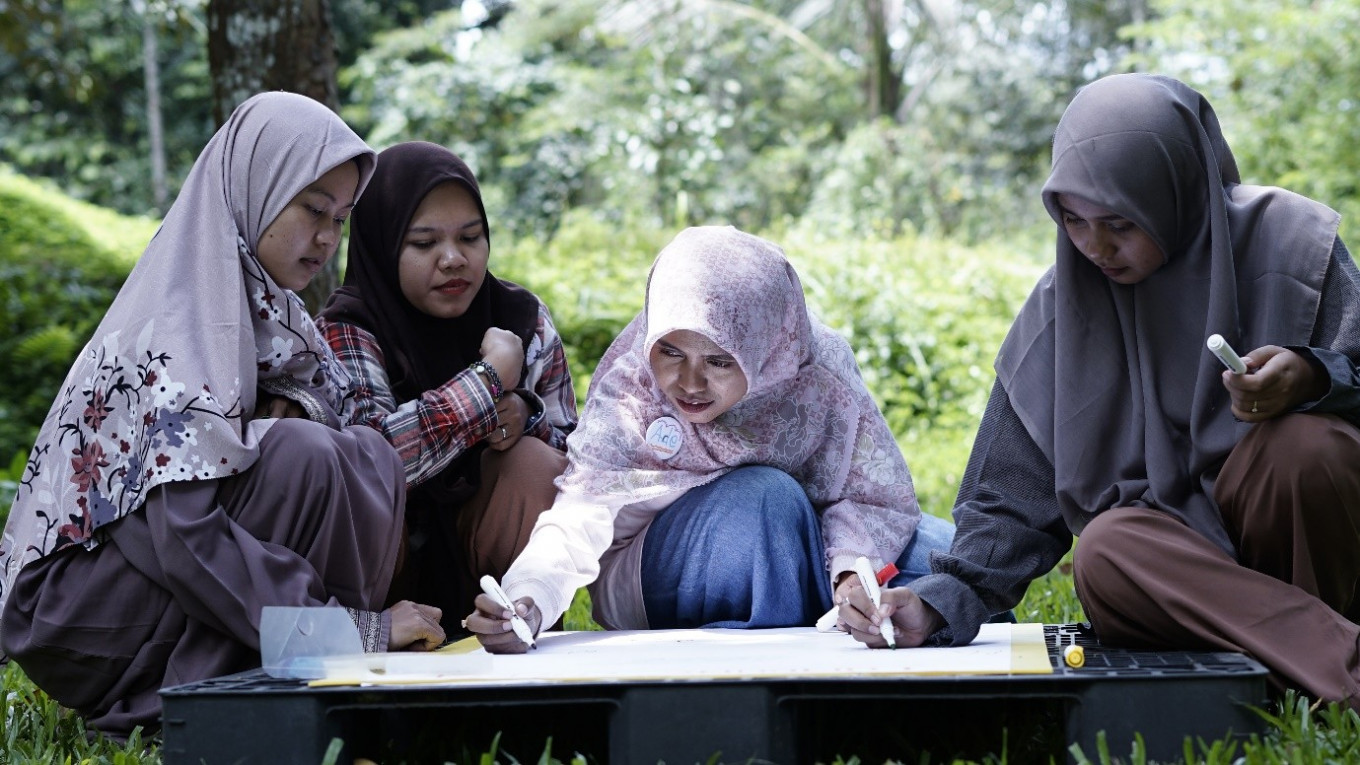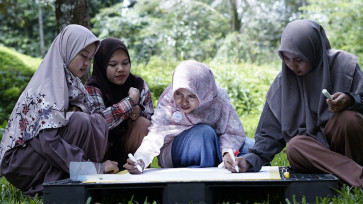Popular Reads
Top Results
Can't find what you're looking for?
View all search resultsPopular Reads
Top Results
Can't find what you're looking for?
View all search resultsEnergy belongs to everyone, so should the transition
The involvement of women and young women in the energy sector can lead to a more transparent and accountable system of energy management.
Change text size
Gift Premium Articles
to Anyone
I
magine a rural village, once cloaked in darkness after sunset, now thriving with businesses operating late into the evening, children studying under bright lights and healthcare facilities offering better services, all thanks to renewable energy.
Now, imagine that women and girls are driving this change. This is not just an idealistic vision, it is happening in Indonesia.
Yet, despite growing evidence that women's and girls’ participation enhances the sustainability of energy projects given their roles as primary energy users, they remain sidelined from decision-making and leadership roles. If Indonesia is to achieve true energy justice, ensuring equitable access, participation and prosperity, women must be at the forefront of its renewable energy transition.
With off-grid renewable installations in remote areas, Indonesia has made commendable progress in rural electrification. However, energy security and reliability means more than just access to electricity, it means ensuring the sustainability and long-term impact of these installations.
Research from the MENTARI program shows that energy projects with strong gender and social inclusion components tend to have better operational outcomes. Rural energy initiatives are more likely to thrive when women are involved, not just as consumers but as managers, entrepreneurs and decision-makers.
Another study called “Blueprint for Rural Electrification” found that energy installations with inclusive governance, where women played active roles, demonstrated higher long-term success rates due to greater community involvement, better financial management and increased sustainability.
For example, in Muara Enggelam, East Kalimantan, women took the initiative to ensure the solar power plant’s maintenance and usage efficiency. These initiatives and the involvement of women led to a more transparent and accountable system of energy management, where community members willingly contributed fees for electricity maintenance, something that was a challenge in male-led management structures.



















